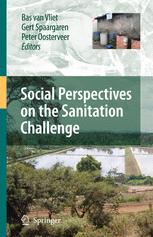

Most ebook files are in PDF format, so you can easily read them using various software such as Foxit Reader or directly on the Google Chrome browser.
Some ebook files are released by publishers in other formats such as .awz, .mobi, .epub, .fb2, etc. You may need to install specific software to read these formats on mobile/PC, such as Calibre.
Please read the tutorial at this link: https://ebookbell.com/faq
We offer FREE conversion to the popular formats you request; however, this may take some time. Therefore, right after payment, please email us, and we will try to provide the service as quickly as possible.
For some exceptional file formats or broken links (if any), please refrain from opening any disputes. Instead, email us first, and we will try to assist within a maximum of 6 hours.
EbookBell Team

0.0
0 reviewsIf the goal is to half the number of people without sustainable access to safe drinking water and basic sanitation by 2015, we may not only need new technologies but rather innovative sanitation concepts, new tools for decision-making and an understanding of diverse stakeholder perspectives along the sanitation chain. Social Perspectives on the Sanitation Challenge presents a timely collection of papers from the perspectives of Science and Technology Studies, Environmental Sociology and Urban Studies. Together they comprise a valuable resource for political scientists, environmental engineers and urban planners whose work is aimed at meeting the ambitious Millennium Development Goal on sanitation.
The book’s main message is that we need to go beyond traditional dichotomies between either ‘small, appropriate’ or ‘modern, advanced’ sanitation solutions in solving the global sanitation challenge and to develop sanitation with a mix of scales, strategies, technologies, payment systems and decision-making structures that better fit the physical and societal systems for which they are designed.
In the developing world the challenge is to provide sanitation services to the poor and the very poor, without compromising on sustainability. In this realm, the book presents new configurations that employ the best practices of sanitation technology and management for rural and urban contexts.
In developed countries the challenge is to initiate a transition from strongly centralized, water-based infrastructure regimes towards more sustainable sanitation regimes. This has raised questions on sanitation concept development, demonstration, institutional learning and governance building to which this book provides some innovative social scientific answers.
Social Perspectives on the Sanitation Challenge is unique in its presentation of research findings from urban planners, sociologists, economists, political scientists and environmental engineers. Its empirical scope, stretching from Western Europe to Sub-Saharan Africa, is deliberately wide to stress the global character of the sanitation challenge that we all face.